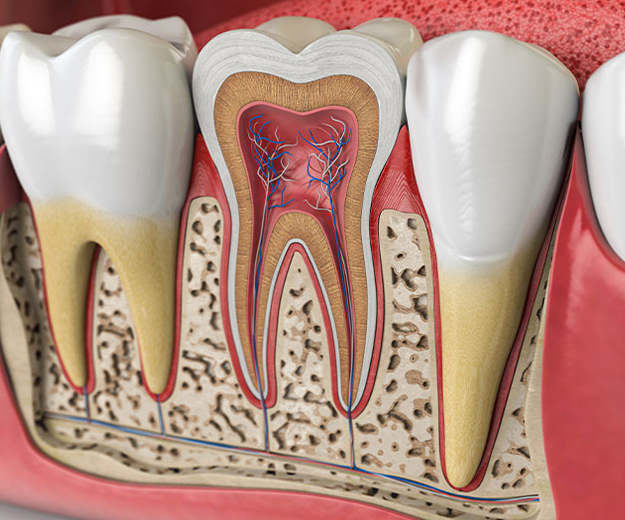
Root Canal Therapy: Saving Your Natural Smile
Understanding the Tooth Nerve
Recognizing the Signs
- Intense pain when biting
- Visible swelling
- Noticeable tooth damage or decay
- Sensitivity to temperature changes
- Persistent or spontaneous pain
- Tooth discoloration
- Discomfort that interrupts sleep
- Tenderness in surrounding gums
The Root Canal Procedure
Root Canal Treatment at Northcliffe Dental
Toothaches serve as a stark reminder that teeth are complex structures with delicate inner components. The tooth's nerve and blood vessels, crucial for nourishment and sensation, can become irritated, damaged, or infected. This often manifests as pain, signaling an underlying issue.
Deep cavities or cracks can provide bacteria with access to the tooth's inner nerve bundle. In some cases, severe infections may develop without noticeable symptoms. If Dr. Ifaz determines that the nerve is beyond recovery or an infection is present, root canal treatment may be recommended.
Modern anesthetics ensure a comfortable procedure for removing the inflamed nerve. The root canal is carefully cleaned, shaped, and sealed, followed by a filling or crown to restore the tooth's function.
Dispelling Root Canal Myths
Despite overwhelming scientific evidence supporting the safety of root canal therapy, misinformation persists. Numerous studies have debunked unfounded claims linking root canals to adverse health effects. These claims often stem from outdated and discredited theories.
Professional dental organizations, such as the American Association of Endodontists, rigorously review research to uphold the safety and effectiveness of root canal treatment. Advancements in techniques and materials have significantly improved treatment success rates. Millions of patients have benefited from root canal therapy, preserving their natural teeth and maintaining oral health.
Choose Northcliffe Dental for Your Root Canal Needs
If you've been diagnosed with needing a root canal, there's no need for anxiety. Millions of people undergo successful root canal treatments annually, relieving tooth pain and preserving their smiles.
A root canal is a procedure to remove an infected pulp, preventing further damage and potential tooth extraction. Early intervention through a root canal can save your tooth from worsening infection. Our team at Northcliffe Dental in Spring Hill, FL offers sedation dentistry for a comfortable and stress-free experience. Don't risk losing your tooth by delaying treatment. Schedule a consultation today to receive the care you need and maintain a healthy smile.
